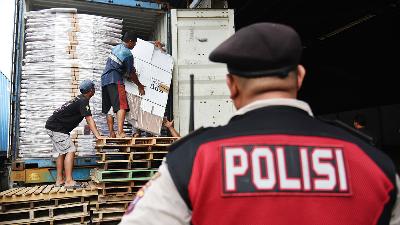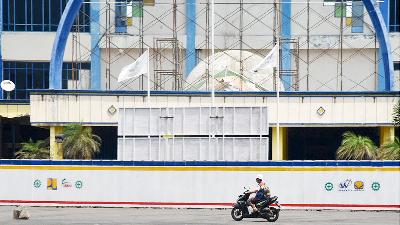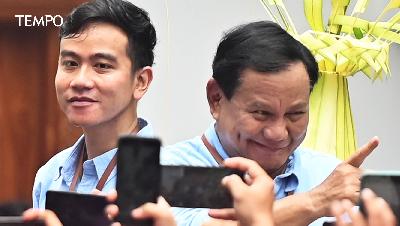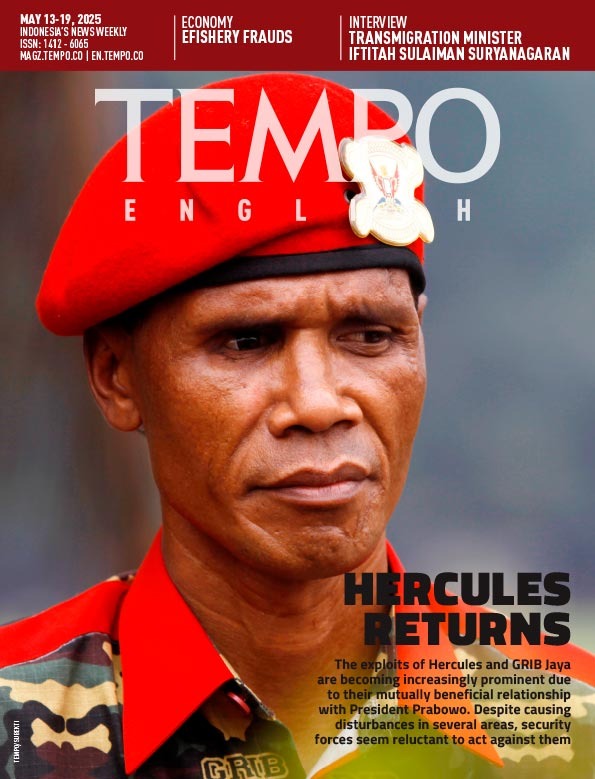The Poor State Auditor Selection Process
Monday, December 4, 2023
Yet again, a member of the Supreme Audit Agency is involved in corruption. The system for selecting these state auditors is very poor.
arsip tempo : 174702878844.

WHAT state institutions are free of corruption after 25 years of the Reformasi era? Perhaps it is difficult to answer. Almost all of them continue to be undermined by the plague of graft. This includes the Supreme Audit Agency (BPK), which is unable to rid itself of this crime. The way that state auditors are recruited is the major cause.
The latest black mark has been left by Pius Lustrilanang, a member of the BPK from the Gerindra Party. He is accused of involvement in gratuities relating to the falsification of the results of an audit in Sorong Regency, Southwest Papua. The ‘98 activist is still officially a witness, but the Corruption Eradication Commission (KPK) officials have already searched his office.
Pius is alleged to have demanded payments from BPK representative offices subordinate to him until the end of December 2023. The amounts in question were Rp1 billion (around US$65,000) from provincial representative offices and Rp500 million (US$32,000) from regency or city offices. He has been responsible for 22 provinces and 241 regencies or cities. There are reports that these payments were collected to be used to help him with his renomination as a member of the BPK next year.
The former activist who was kidnapped in 1998 is a member of the BPK for the period from 2019 to 2024. One of his colleagues from the same period who is also a politician, Achsanul Qosasi, has already been detained. The Democrat Party politician was detained by the Attorney General’s Office as a suspect of corruption in relation to the supply of BTS towers. Both men are alleged to have asked for money for audit results. Back in 2020, Rizal Djalil, a BPK member from the National Mandate Party (PAN), was also convicted of corruption in relation to a drinking water project.
These three examples—all involving people from political parties—are completely at odds with the main requirement to become a member of the BPK. According to Article 13 of Law No. 15/2006 on the BPK, prospective members of the institution must, “Possess moral integrity and honesty.” Naturally, this abstract measurement cannot be detailed in the selection process, especially since no independent bodies are involved in the selection of prospective members.
And there is no public involvement at any stage of the BPK member selection process. All of a sudden, these candidates have already undergone a fit-and-proper test of the House of Representatives. In the last few periods, it is as though politicians from a number of parties have obtained wild cards—to use the sporting term—to automatically obtain positions. These political backgrounds could trigger conflicts of interest, especially when people are reported to be also saddled with the burden of providing funds for their respective political parties.
It has long been rumored that audit results are a commodity that can be bought and sold. Often the result of ‘unqualified opinion’, which should be a sign of high quality management, turns into a certificate to whitewash wrongdoing. Organizations being audited pay auditors to obtain this coveted status. As a result, leaks are often subsequently found despite the audited organizations being awarded this status. State auditors who should be looking for embezzlement themselves become a part of this crime.
It is time for the BPK member selection process is improved. Although it is not a cast iron guarantee, widespread public involvement in the selection of members could reduce the possibility of corrupt individuals being selected.











